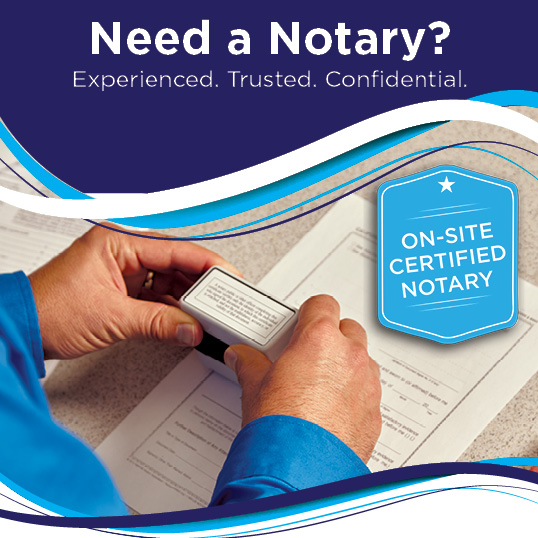Notary Public: Your Trusted Witness and Document Authenticator
Notary Public: Your Trusted Witness and Document Authenticator
Blog Article
Demystifying Notarial Job: Streamlining the Duty and Significance of Notaries
In the complex internet of lawful documents and verification, notaries stand as columns of assurance and credibility. Their function, frequently shrouded in secret for lots of, brings considerable weight in making certain the legitimacy and stability of crucial documents. As guardians of legality and truth, notaries play a critical part in our culture, yet their job is not always completely understood. By unwinding the complexities shedding and bordering notarial techniques light on the value of their acts, a more clear understanding arises of the essential function notaries play in upholding the material of legal and legal arrangements.
The History of Notarial Job
Just how did notarial work develop with time to come to be an integral component of legal and business deals? The history of notarial job go back to ancient people, where scribes played a vital duty in tape-recording vital details and authenticating papers. As cultures proceeded, the requirement for a more formalized system to make certain the validity of contracts arose. This brought about the advancement of notaries, people appointed by the state to serve as neutral witnesses in lawful issues.
During the Center Ages, notaries obtained prominence in Europe, with their features broadening to consist of drafting lawful papers, licensing trademarks, and maintaining records. The surge of global trade further highlighted the relevance of notarial operate in confirming contracts and arrangements throughout boundaries.
In the modern era, notaries proceed to play a vital function in lawful and service transactions by validating identifications, confirming the credibility of documents, and avoiding scams. Their role in certifying the credibility of contracts adds a layer of safety and depend the ever-evolving landscape of business and regulation.

Responsibilities and Responsibilities of Notaries
Notaries play an essential function in verifying the credibility of files and the identification of notaries. One of their primary duties is to witness the signing of essential papers, such as actions, wills, and agreements, to make certain that all celebrations are entering right into agreements intentionally and willingly.
Moreover, notaries are charged with carrying out vows and affirmations, which are critical in legal process and the execution of testimonies. They certify copies of initial documents, offering assurance to establishments that the copies hold true reproductions of the originals. Notaries have to maintain exact documents of all purchases they oversee to guarantee openness and accountability. Overall, the duties and responsibilities of notaries are necessary in securing the stability and validity of numerous records and transactions.
Notarial Certificates and Signatures
Exemplifying thorough attention to detail, notarial certifications and trademarks function as necessary parts in verifying the credibility of legal documents. Notarial certifications commonly include vital info such as the date of registration, the names of the signatures, a description of the document, and the notary's main seal. These certifications provide a clear document of the notarial act, making certain that the record can be easily identified and mapped back check out this site to the notary who managed the process.
Trademarks play a critical function in notarial work, as they indicate the contract and approval of the celebrations involved. Notaries meticulously witness the signing of papers to confirm the identification of the notaries and validate that they are signing of their very own totally free will. By fastening their official seal and trademark to the paper, notaries certify that the needed treatments have been adhered to and that the paper is enforceable and valid.
Essentially, notarial certifications and signatures are the characteristic of authenticity in legal transactions, offering guarantee to all parties included that the records are legit and binding.
Value of Notarial Acts

Notarization Refine Explained
Explaining the notarization procedure provides clearness on the important steps associated with verifying lawful documents. The notarization process usually starts with the specific providing the article source paper to a notary public. The notary then verifies the signer's identification via appropriate recognition approaches. As soon as the identity is verified, the notary makes sure that the private signing the document does so willingly and with no threat.
Verdict
Notarial certifications normally Apostille have important info such as the day of notarization, the names of the notaries, a summary of the file, and the notary's official seal. These certificates offer a clear document of the notarial act, ensuring that the record can be easily identified and mapped back to the notary that managed the process.
By affixing their main seal and trademark to the paper, notaries certify that the needed treatments have been adhered to and that the paper is enforceable and valid.
By verifying the identity of the signatures, verifying their readiness to get in right into the arrangement, and accrediting the day and place of the signing, notaries play a critical role in maintaining the credibility of legal files.After the file is authorized, the notary will affix their official seal or stamp onto the document.
Report this page